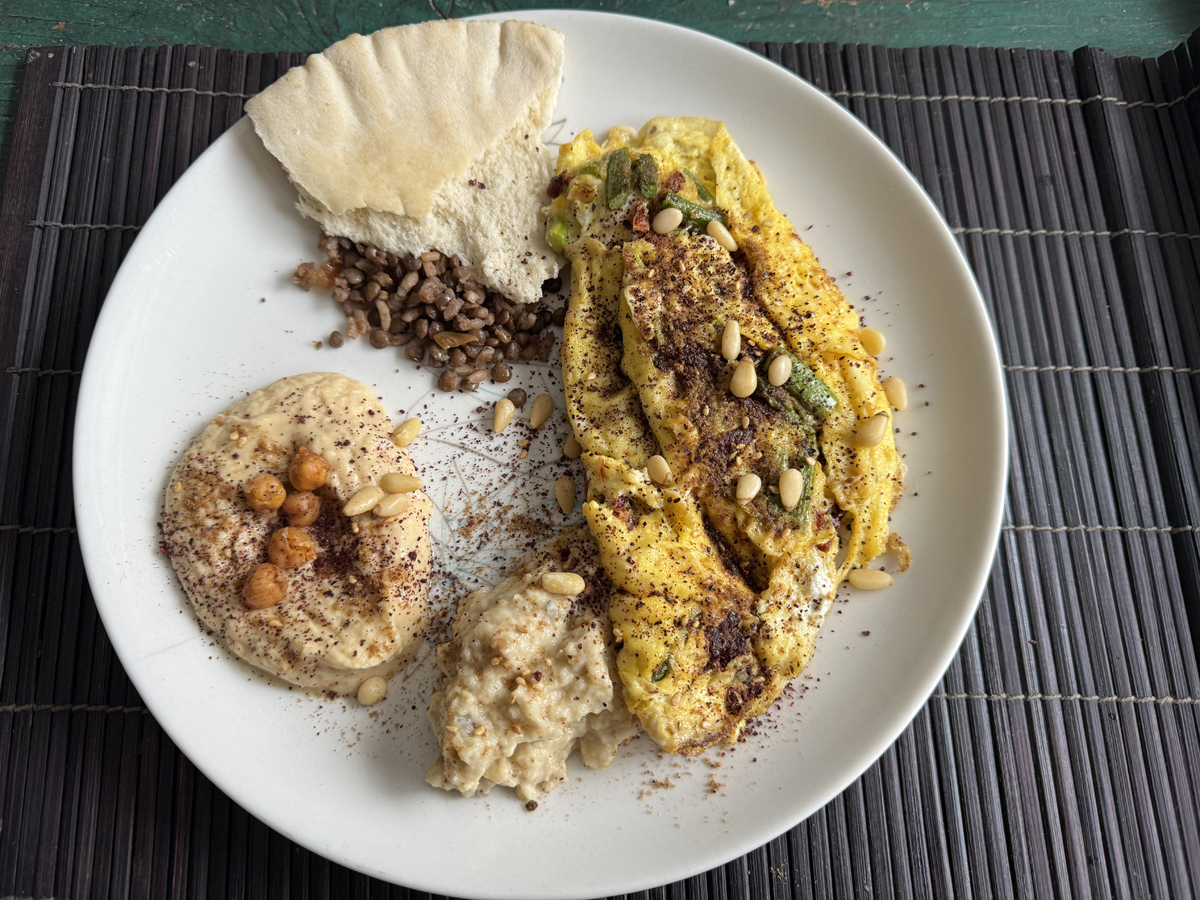By Nancy Clark MS RD CSSD, Oct 2024 — The Academy of Nutrition and Dietetics (AND) is the nation’s largest group of food and nutrition professionals. At their annual convention (Oct 2024; Minneapolis), members presented research and updates that might be of interest to sports-active people. Here is a sampling of some hot topics:
Teenagers (14-18 years) in the US have the lowest Healthy Eating Index Score (49 out of 100) due to their high intake of sweetened beverages and sweet baked goods. How about suggesting more water, bagels with peanut butter, and bean burritos for easy, low cost, and better sport-food options?

Athletes commonly over-eat protein. This raises environmental as well as health concerns. Insects are a sustainable source of protein—though they quickly get labeled disgusting. The most palatable insect form is powdered (flour). Will athletes one day embrace insect-based protein products? Stay tuned…
Most female athletes, including those in this study with Division-1 soccer players, eat too little carbohydrate. Analysis of food records from 12 players suggests they ate the recommended amount of fat and protein, but 10 of 12 players fell short of the recommended 2.5 to 4.5 grams of carb/lb/day. For a 120-pound player, that’s at least 1,200 to 2,150 calories a day from carb-rich grains, fruits and veggies. Athletes could perform so much better if they were to enjoy more (quality) carbs!
The body’s response to sugary foods differs between sedentary and fit people. Exercise enhances your muscle’s ability to quickly take up glucose, potentially offsetting “sugar spikes” after consumption of high-sugar foods. Blood sugar management is a good reason to take a walk after enjoying a sweet treat.
Athletes often complain about intestinal discomfort and GI distress. Gut issues can be triggered by school, work and athletic stress; disordered eating, anxiety, and depression. Consulting with a sports dietitian (RD CSSD) can help athletes to reduce, if not resolve, gut issues.
Athletes with gut issues might benefit from taking digestive enzymes (such as FODZYME, Bean-O, LactAid Pills). A FODZYME study with 96 participants (average age-57) reports more than half had a positive response. They reported less abdominal pain, bloating, gas, constipation, diarrhea, vomiting, and nausea—plus better mental wellbeing as well as overall quality of life.
Food allergies, food sensitivities, and/or autoimmune diseases that limit dietary options are challenging for many athletes, particularly those in college. They express frustration, discomfort, annoyance, isolation, and increased anxiety—especially when dining hall staff are unable to confidently answer their questions. Their overall college experience gets negatively impacted, as they can be excluded from on-campus events that offer free food. They commonly have to prepare and carry enough food for the entire day, and/or face limited options when dining out. Students may worry about getting sick after eating school food, which can lead to class absences, trips to the doctor, and difficulty making up missed assignments. Helping athletes with dietary restrictions is important so they can meet their nutritional needs plus have emotional well-being.
Tik-Tok can easily trigger disordered eating attitudes and behaviors. Don’t go there! A mom who makes disparaging comments about her own body can also trigger the development of an eating disorder in her daughter. Keep any negative body-thoughts to yourself!
A study with 70 females reports a disconnect between actual and perceived body fatness. Distorted body image—an unrealistic view of oneself—increases the risk of restrictive dieting and starve-binge eating patterns to lose body fat. Athletes: please understand that some body fat is necessary for overall health!
Relative Energy Deficiency in Sport (REDs) is a syndrome stemming from chronic consumption of inadequate food to meet daily energy expenditure. This deficit impairs athletes’ health and performance. Athletes with REDs are at increased risk for eating disorders/disordered eating. Coaches, health professionals, and all athletes alike need REDs education, particularly in sports settings where REDs signs and symptoms are prevalent. If you work with a team, how about setting up a REDs workshop with your local sports dietitian?
Female athletes commonly believe society expects them to look feminine and have an ideal body. This unspoken weight bias presents as:
- negative comments about weight or appearance,
- pressure to conform to certain body standards,
- unequal treatment compared to leaner peers.
A survey of normal-weight female athletes reported almost half had experienced weight discrimination. We need to change this mindset so that strong and powerful replaces the quest to be lighter and leaner.
Many athletes with eating disorders/disordered eating feel ashamed of their dysfunction and fear being stigmatized for having an eating disorder. Unfortunately, this can hinder willingness to seek help and delay their recovery. If you have overcome food issues, please talk openly about your recovery so those who are struggling can hear your story. You just might make a difference in someone’s life.
A light-colored morning urine signals adequate hydration. Athletes who exercise in tight-fitting uniforms may fear that drinking pre-exercise water will make their stomach stick out. That fear is not a fact!
Although student athletes generally need sports nutrition education, they may miss out because of lack of funding. One school solved that problem by partnering with nutrition graduate students who worked together with student athletes to figure out what topics were of interest. (The winning topics included basic nutrition, game-day fueling & recovery, sport supplement benefits and costs, and game-day meal planning.) They then created a class that met once a week before school (that was the athletes’ suggestion) for four weeks. The 35 athletes became empowered with the knowledge—and the graduate students appreciated the real-world teaching experience. Maybe you can make that happen in your town or with your team?
(Visited 13 times, 13 visits today)
